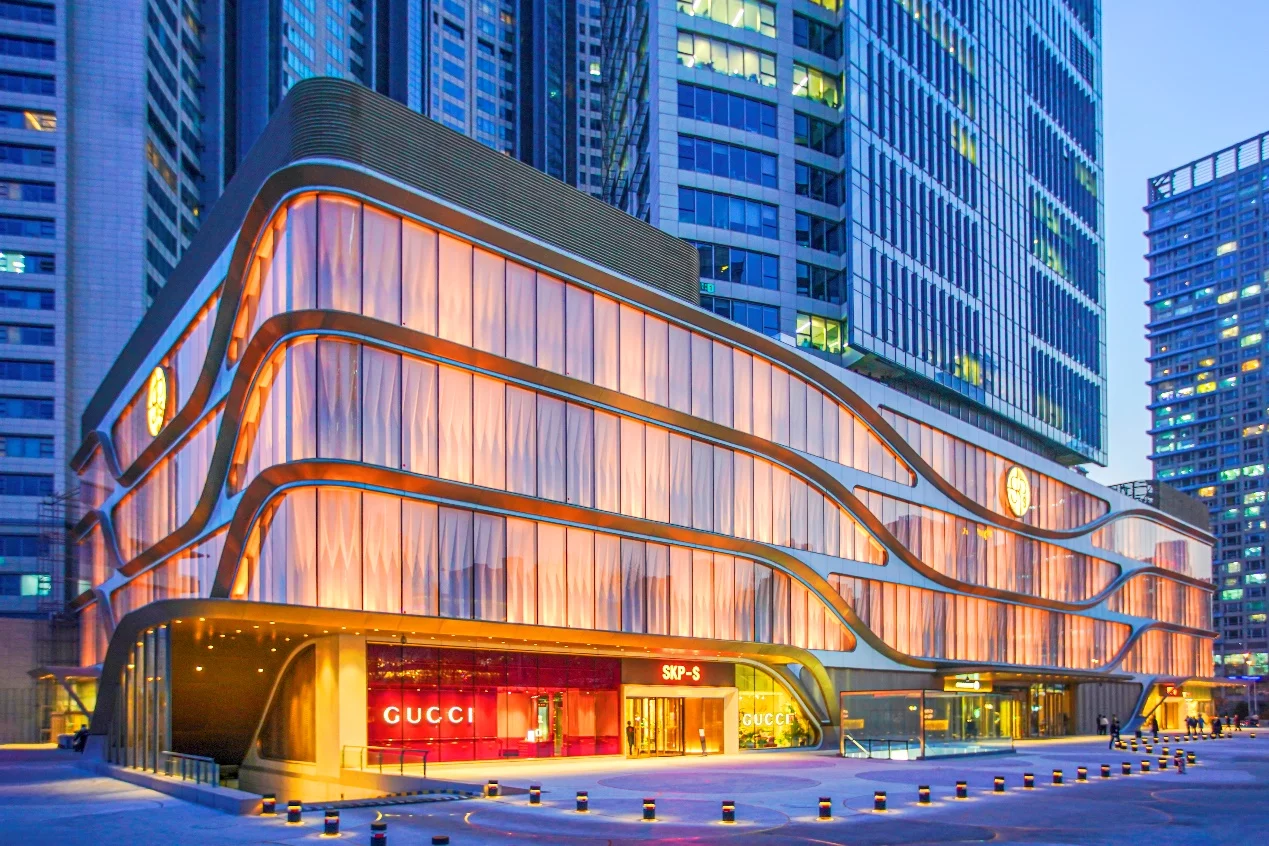Beijing’s Shin Kong Place (SKP), the world’s most profitable shopping mall, has become China’s first retail group certified by Carbonstop – the first carbon management software and consulting services provider in China, as according to Women’s Wear Daily (WWD) on 22 November. The certification makes the luxury department store chain the first of its kind to be certified carbon neutral in China, pushing an environmental concern the country is focusing towards in the future.
It is reported that earlier in June this year SKP had entered a partnership agreement with Carbonstop, with the latter providing strategic planning for the retailer to achieve the goal, with there being significant success within only a few months.
In an interview with WWD, a spokesperson for SKP said the group has “discreetly but deeply worked in the past years to rethink its way of working, tracking every possibility to reduce its carbon footprint and making sure that its expansion in China be respectful of the planet”.
Spokesperson for SKP
The retailer also revealed that the group is reviewing “every aspect of its energy consumption” and is on track to set up new standards for luxury retail”. It is understood that these practices have been implemented at existing SKP stores in Beijing and Xi’an, and they will also be applied to its upcoming stores in Wuhan and Chengdu.
These efforts are clearly a response to China’s carbon emission pledges, which include reaching peak greenhouse gas emissions by 2030 and being carbon neutral by 2060. Businesses in China, especially the country’s tech giants, have since then announced their commitment to reducing carbon footprint in line with the government policies. Meanwhile, the Chinese public too is becoming more environmentally conscious as the government stepping up efforts in tackling climate change.
As China’s top shopping mall and home to some of the world’s renowned luxury brands, the approach taken by SKP would allow it to contribute to a greener and more sustainable consumption of luxury products. By exercising its environmental responsibility, the practice, in return would benefit the group as it wins over climate-friendly consumers while maintaining sustained growth for its own.
It is clear that aligning business demands with governmental and consumer attitudes towards the environment will only have positive impacts on revenue but also on the global environmental crisis.
Read more:









